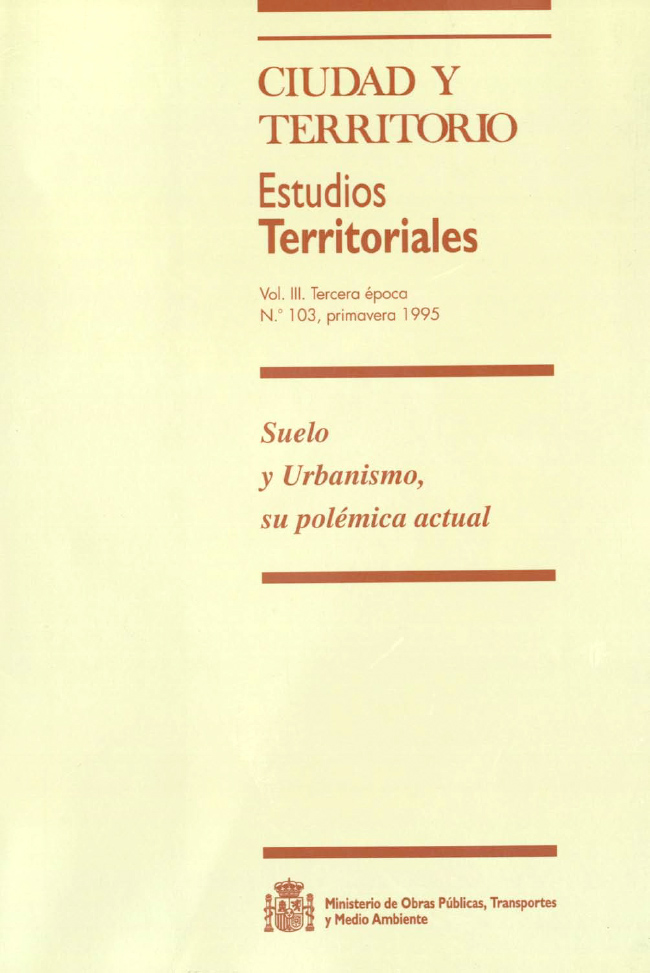In search of the pin that burst the balloon
Abstract
exceptions to the prohibitions or rulings of planning.To this end, both rulings and prohibitions should be inflexible, few and well intentioned. It also indicates that in such cities that work as a unity, there are cases of a non-concentric growth. The paper continues by laying down that no specific citizen can ever be asked to shoulder special charges even though doing so might tend to the general good, even less could this be done if these were to a non-public end but rather private benefit. The negation to an individual of property rights is thus a requisioning and, as such, must lead to full compensation and this at actual market levels. The socialization of land, though proposed was rejected for the Spanish Constitution which, quite otherwise, recognizes a free market system (subsidized goods and services rendered being the only exceptions to this determination) along with the right to land ownership this including the right to improve/build on this and thus such a right as the latter can only be subject to limits but never be granted as it already has been. even such limitation to only be contemplated when guaranteeing the freedom of all others. The paper rounds of by stating that any lack of respect for liberty is always dictatorial.
Downloads
Downloads
Published
How to Cite
Issue
Section
License
Copyright (c) 1995 Manuel Martí Ferrer

This work is licensed under a Creative Commons Attribution-NonCommercial-NoDerivatives 4.0 International License.
Considering the provisions of the current legislation on Intellectual Property, and in accordance with them, all authors publishing in CyTET give -in a non-exclusive way and without time limit- to the Ministry of Transport, Mobility and Urban Agenda the rights to disseminate, reproduce, communicate and distribute in any current or future format, on paper or electronic, the original or derived version of their work under a Creative Commons Attribution-NonCommercial-NoDerivative 4.0 license International (CC BY-NC-ND 4.0), as well as to include or assign to third parties the inclusion of its content in national and international indexes, repositories and databases, with reference and recognition in any case of its authorship.
In addition, when sending the work, the author(s) declares that it is an original work in which the sources that have been used are recognized, committing to respect the scientific evidence, to no longer modify the original data and to verify or refute its hypothesis. Author(s) also declare that the essential content of the work has not been previously published nor will it be published in any other publication while it is under evaluation by CyTET; and that it has not been simultaneously sent to another journal.
Authors must sign a Transfer of Rights Form, which will be sent to them from the CyTET Secretariat once the article is accepted for publication.
With the aim of promoting the dissemination of knowledge, CyTET joins the Open Journal Access (OA) movement and delivers all of its content to various national and international indexes, repositories and databases under this protocol; therefore, the submission of a work to be published in the journal presupposes the explicit acceptance by the author of this distribution method.
Authors are encouraged to reproduce and host their work published in CyTET in institutional repositories, web pages, etc. with the intention of contributing to the improvement of the transfer of knowledge and the citation of said works.








 Enlace a CyTET en Linkedin
Enlace a CyTET en Linkedin